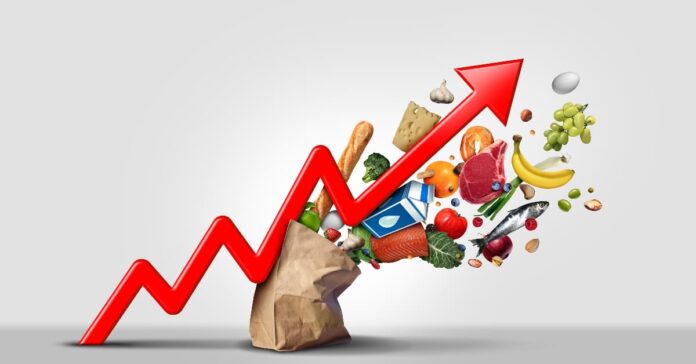The latest data on short-term inflation, assessed through the Sensitive Price Indicator (SPI), indicates a 0.71% increase primarily due to higher food and gas prices.
The Pakistan Bureau of Statistics (PBS) reported that the week’s inflation rate increased by 29.88% compared to the same week last year.
This increase was primarily driven by a 108.38% surge in gas charges for the first quarter and a 94.46% rise in cigarette prices during the same week.
This modest uptick is attributed to a rise in food prices, marking a departure from the trend of slowing essential commodity price increases observed over the previous two weeks.
During the week, out of the 51 items tracked, prices of 12 items (23.53%) saw an increase, while 14 items (27.45%) experienced a decrease. Meanwhile, prices for 25 items (49.02%) remained stable on a week-to-week basis.
In terms of the monthly Consumer Price Index (CPI), Pakistan recorded a 10-month low at 26.9% for October, a decline from the four-month high of 31.4% in the previous month of September 2023.
The central bank aims to maintain an average monthly inflation rate within the range of 20-22% for the current fiscal year 2023-24, despite the recent significant increase in gas prices affecting consumers across the board.
However, a local research institute holds a differing view, forecasting an inflation rate of 24.5% due to the significant upward revision in gas prices recently announced.




